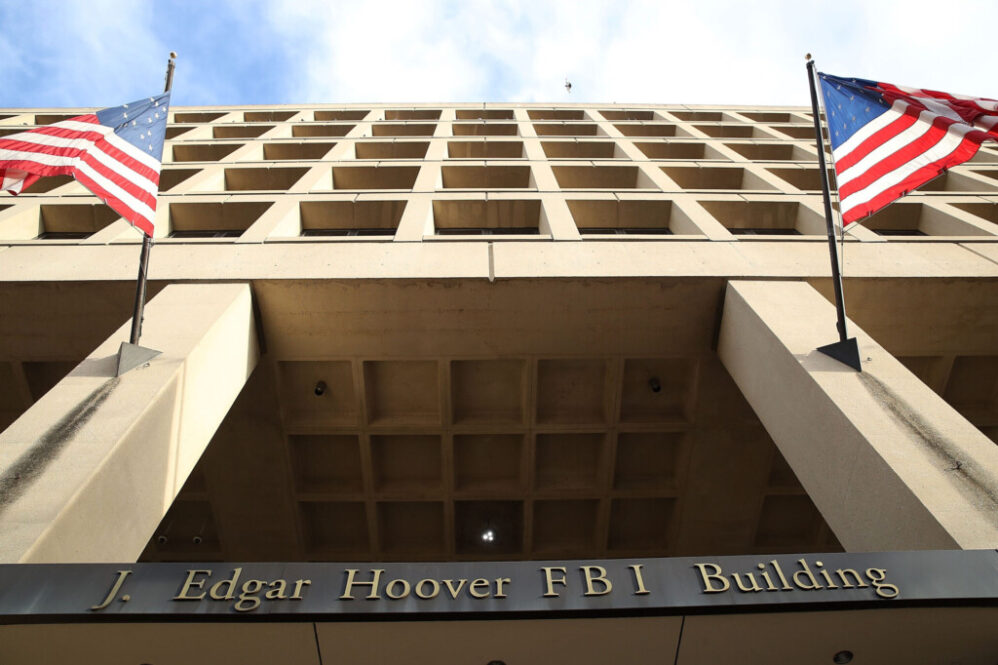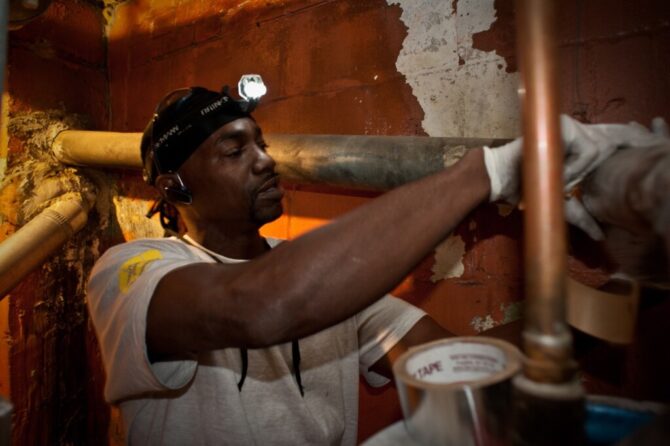Maryland and Virginia politicians vying for the prize of a new FBI headquarters have just a few months left before a crucial federal government decision.
The U.S. General Services Administration is expected to pick the best of three locations as soon as September, ending nearly two decades of advocacy, confusion and frustration across four presidencies about whether the FBI should move to the suburbs bordering the District of Columbia or stay downtown.
GSA staffers told Congress last week during closed-door briefings that all three possible locations selected as options during the Obama administration — Greenbelt and Landover in Maryland and Springfield, Va. — are still viable locations for the future FBI headquarters.
“For far too long, the FBI workforce has remained in a building that does not meet their security or operational needs,” U.S. Sens. Ben Cardin and Chris Van Hollen as well as Reps. Anthony Brown and Steny H. Hoyer said recently.
“That’s why we will keep pushing for the new headquarters, and we are confident that the Maryland sites in Greenbelt and Landover are the best locations,” the Maryland Democrats continued.
The Northern Virginia delegation, made up of Sens. Tim Kaine and Mark Warner along with Reps. Don Beyer, Gerry Connolly and Jennifer Wexton, said in a statement they are “pleased” the General Services Administration determined Springfield remains an option.
“This is an important milestone in the site selection process, and we look forward to continuing to work with the Administration to bring an FBI headquarters that best supports the mission of the FBI, to Northern Virginia,” the Democrats said.
A move to the suburbs
The new location will be the first time the FBI moves from its Pennsylvania Avenue headquarters in downtown Washington, D.C., since the building opened in 1974.
The process of relocating thousands of FBI agents and officials began in 2005 when the agency’s Asset Management Plan cited the need for a new headquarters, given the deteriorating condition of the current 2.4 million square foot HQ and its tight quarters.
The building is bounded by four major city streets — 9th, 10th, and E Streets and Pennsylvania Avenue Northwest — all of which are open to public traffic, the report noted. The building is a concrete structure, seven stories high on its Pennsylvania Avenue side and 11 stories high on its E Street side.
In 2011, the Government Accountability Office, under orders from Congress, wrote a report that concluded “the FBI has outgrown its main headquarters facility, the J. Edgar Hoover Building.”
“Headquarters staff who cannot be accommodated in the Hoover Building are dispersed in over 40 leased annexes, the majority of which are located in the National Capital Region,” the report said. “FBI officials report that the dispersion of staff, combined with condition deficiencies at the Hoover Building and site, affects security and creates operational inefficiencies.”
At the time, the GAO said there were three paths forward — modernizing the existing building, rebuilding in the same location, or moving to a new headquarters in a different location.
The federal government settled on moving the FBI to the suburbs and in 2014 the GSA selected the three locations as possible sites.
Move canceled
The project continued advancing until July 2017, President Trump’s first year in office, when the GSA released a statement saying it was canceling the project.
The agency cited funding, but noted “the cancellation of the project does not lessen the need for a new FBI headquarters.”
The action brought concern and condemnation from Democrats, especially after reports that Trump didn’t want a hotel company buying the current FBI site and competing with his nearby Trump International Hotel, which has since been sold.
The following February, the GSA submitted a plan that would have built a new FBI headquarters on the existing site while sending staff to other locations throughout the country.
Trump administration officials at the GSA claimed that would be less expensive than building a suburban headquarters, but an Inspector General report said that wasn’t the case.
“We found that GSA did not include all of the costs in its analysis, and that the JEH demolish and rebuild plan would actually be more costly,” it said.
The report said that it wasn’t clear how the plan to rebuild in downtown Washington, D.C., would meet security goals.
The Inspector General also rebuked then-Administrator Emily Murphy for congressional testimony that “was incomplete and may have left the misleading impression that she had no discussions with White House officials in the decision-making process about the project.”
A new search
The GSA dusted off its search process this spring after Congress added a provision to the annual government funding package requiring GSA Administrator Robin Carnahan to make a final decision on a location in an “expeditious manner.”
While the law doesn’t include a specific timeline, a Senate Democratic aide said lawmakers are urging the administration to pick a site by September.
The Biden administration is also supportive of the plan, saying in its fiscal 2023 budget request that the “J. Edgar Hoover building can no longer support the long term mission of the FBI.”
The White House tasked the FBI and GSA with using the next year to come up with the exact number of personnel to work at the suburban headquarters as well as an updated list of requirements for the project.
“Additionally, FBI and GSA will work to identify a Federally-owned location in the District of Columbia to support a presence of approximately 750-1,000 FBI personnel that would support day-to-day FBI engagement with DOJ headquarters, the White House, and Congress,” the budget says.
The updated plan is expected to allow the Biden administration to send Congress a formal budget request for the new FBI headquarters project next year.
Ahead of that, U.S. House lawmakers are proposing $500 million go towards the new suburban headquarters, which is expected to have a price tag in the billions.
Maryland Democratic Reps. Brown, Hoyer, Kweisi Mfume, Jamie B. Raskin, Dutch Ruppersberger, John Sarbanes, and David Trone celebrated the House including the money in the draft bill.
“This funding will ensure that the Biden Administration has the resources it needs once it selects a site to move forward with construction of the new headquarters this fall,” they wrote in a statement.
This article was posted by Maryland Matters, read more articles like this here.
Photo: The J. Edgar Hoover FBI Building in Washington, D.C., is in ill repair, and Maryland and Virginia are scrambling to relocate the headquarters in their jurisdictions. Photo by Mark Wilson/Getty Images.










